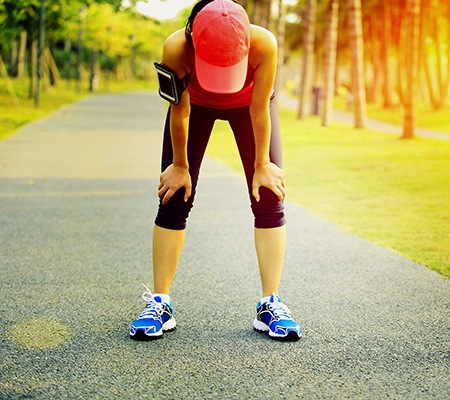Effective Cardio - How To
Look around next time you are at a gym. Look at the people doing cardio on treadmills and look at the people strength training.
Cardiovascular training... a great supplement for most fitness goals. Key word here: supplement. Below I will speak to how cardio should be applied depending on your desired physical outcomes. At the very bottom I describe how to progress to keep the results coming after your body starts adapting. My high school and collegiate career of cross-country running and wrestling will be useful here.
Muscle or Strength Gains
Here's the deal with this one. We are animals after all. When we teach our bodies that there is not enough food available in relation to the energy we expel searching to find it, our bodies will turn down the dial on our metabolism and cut corners where ever it can. The first priority to eliminate is building muscle. Muscle is a very expensive and low-priority use of energy and calories. During periods of "cuts" in body fat for competitions, body builders see no increase in strength and muscle mass. Conversely, during periods of muscle gain, they make sure to have at least a 10% surplus of calorie and tend simultaneously gain about 1 pound of fat per 1 pound of muscle they acquire. While not impossible, especially for those relatively new to workout out, this article links to related scientific studies illustrating this idea.
Therefore cardio, in respect to building a toned physique, should be thought of as way to increase stamina during strength training sessions. Most folks that achieve a very ripped, toned physique either have crazy genetics or do cycles of "bulking" and "cutting" with cardio becoming more necessary during cutting periods. A good summary of how to do this is here.
Weight Loss
Cardio alone is going to be a continuous uphill battle if weight loss is your aim, especially when paired with an excessively low-calorie diet. Here's why:
Cardio boosts your metabolism for only a short period during and after your jog. For a more long-lasting metabolism boost, putting on muscle will be a more sustainable and realistic use of your time. I get it, cardio takes very little expertise, thought, or planning to do. But for each pound of muscle you put on, 50 Calories per day are burned just maintaining that muscle...even while sleeping all day or vacationing. This research article reinforces the idea that muscle building should be your #1 priority in achieving a weight-loss. Don't worry ladies, you won't accidentally wake up one day with a bulky/masculine body, it just doesn't happen.
Now, when cardio is done with a low-calorie diet, it can damage your metabolism for a long, long time. Can anyone think of someone who has gained more weight back after initially losing weight on a diet? This is classically seen in the after-effects of The Biggest Loser. Contestants report a daily caloric expenditure of sometimes less than 1000 Calories. This is due to the damage of loosing too much weight too quickly. Push against your metabolism too hard and it will push back. Losing about 1 pound of fat (I said fat not body weight) per week is what you should shoot for according to many credible sources.
Cardio Programming
This is the easy overview of what I prescribe to clients to do outside of our sessions. All is done with a 5 minute warm up and 5 minute cool down. HR-max is roughly calculated as 220 minus your age.
Level 1 Working toward 30 minutes of continuous effort in the pre-lactic zone (staying in an intensity where they can still carry a conversation or 65%-75% HR-max). This can take a month or two.
Level 2 Interval training at 3:1 ratio of work to rest for up to 30 minutes. The work is done in the medium-effort zone (76%-85% HR-max) and recovery in the Level 1 zone.
Level 3 Interval training at 1:1 ratio of work to rest between maximum effort (86%-95% HR-max) and medium effort for up to 30 minutes.
Want someone to manage
all this for you? I'd love to.

